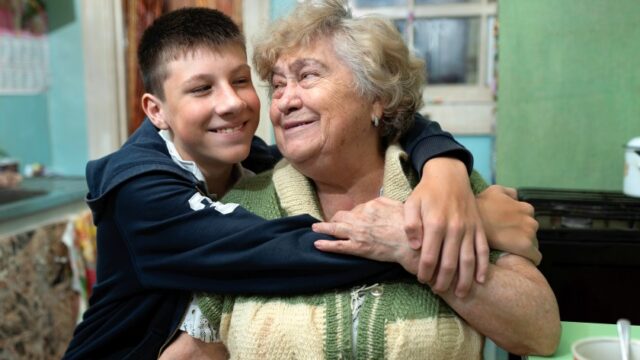Tip Sheet
Supporting Educational Access for Kinship/Grandfamilies
Download This Resource

A Network Monthly Resource: January 2023
Education is high on the to-do lists of kin and grandfamily caregivers. Accessing educational services for children in their care can be difficult. Frequently, kin/grandfamily caregivers lack legal custody of the children and/or are unfamiliar with the local education system. This resource is designed to help direct-service professionals assist caregivers in ensuring the children they raise have the educational experiences needed to thrive.
How do I help a caregiver enroll a child in school if the caregiver has no legal custody?
Many grandparents and other kin caregivers are raising children without court or child welfare involvement. As a result, caregivers frequently lack the paperwork that gives them the authority to make educational decisions for the children in their care.
- Rules giving caregivers the right to enroll the children in school and make educational decisions vary around the country.
- The McKinney-Vento Act, a federal law providing for the education of homeless children, can be used to allow students cared for by kin (without legal custody or child welfare involvement) to remain in their schools of origin OR immediately enroll in a new school, even if they do not have records required for enrollment. The Grandfamilies & Kinship Support Network’s Resource Library has more information on Washington State’s use of this law.
What if a family is concerned the child in their care has special needs?
Caregivers can discuss developmental concerns, including a family history of trauma, neglect, or abuse, with the child’s health care provider. Families can also go online to learn about expected developmental milestones up to age 5.
Assisting families with children up to 3 years of age
- Free screening for developmental delays is available to every child in every state and territory.
- Help connect families to their local agency. A list of Early Intervention Contact Information by State is available from the Centers for Disease Control (CDC).
- Eligibility for early intervention services is based on an evaluation of the child’s skills and abilities.
- If a child assessment identifies one or more developmental delays, a plan will be made for early intervention to provide services and supports, either free or based on a family’s ability to pay.
Assisting families with children ages 3 to 21
- Schools provide support to children and youth with developmental delays and disabilities from ages 3 to 21.
- If a child previously received early intervention services and more help is needed, the family’s service coordinator can help with this transition.
- If children are not enrolled in school yet, caregivers can call their local school district’s Special Education office and ask for the “Child Find” program. Under this federal program, public schools must look for, find, and evaluate children who may need special education, all free of charge to the families.
- Students who are found to be eligible for special education services are entitled to receive an Individualized Education Plan (IEP), developed by families and professionals. This plan may include extra classroom support, supplementary services such as occupational therapy, and/or a special education classroom.
- If a child has a disability or impairment that impacts their ability to fully participate in a typical classroom setting but does not qualify for or need a comprehensive IEP, a 504 plan may be useful. Families can talk to a teacher, school psychologist, or guidance counselor about eligibility.
- Navigating the educational system can be daunting. Referring families to a “parent center” can be helpful. These Parent Centers, available in each state, DC, Puerto Rico, and the US Virgin Islands, provide a variety of free, direct services for children and youth with disabilities, families, professionals, and other organizations that support them. Caregiver support groups can also be very helpful for the families you serve. Consider referring families to their state or territorial GrandFacts fact sheet for organizations with such groups.


